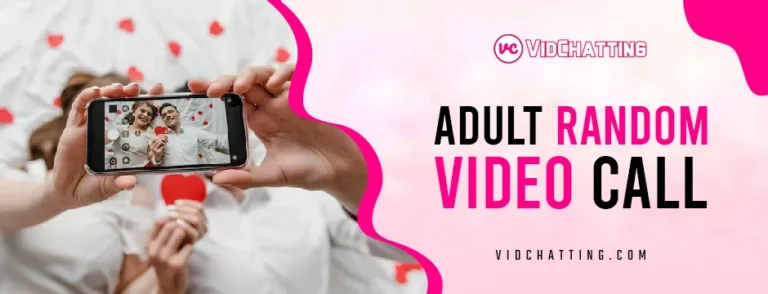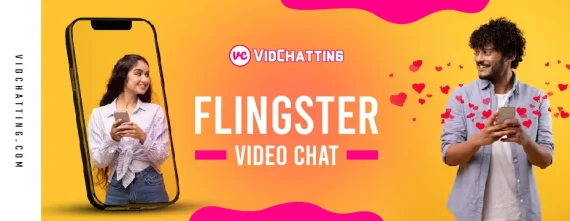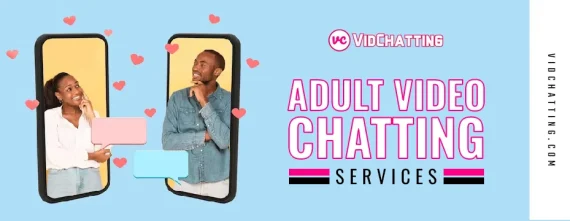In today’s digital age, where virtual communication has become the norm, random video calls have emerged as a powerful tool for fostering human connection. While video calls were initially seen as a means for staying in touch with friends and family, they have also gained significance in the realm of mental health. This blog explores the profound impact that Adult Random Video Call can have on our mental well-being, highlighting the benefits, challenges, and best practices for leveraging this technology for therapeutic purposes.
The Need for Connection
Loneliness has become a pervasive problem in our modern society, affecting people of all ages and backgrounds. It is a complex emotional state characterized by a deep sense of social disconnection, isolation, and a lack of meaningful relationships. The rise of digital communication, while offering convenience and efficiency, has paradoxically contributed to an increase in loneliness. Social media platforms and messaging apps may provide a sense of connection, but they often lack the depth and authenticity of genuine human interaction.
The psychological impact of loneliness should not be underestimated. It can lead to a range of mental health issues, including depression, anxiety, low self-esteem, and reduced overall well-being. Chronic loneliness has been linked to an increased risk of cardiovascular diseases, weakened immune system function, and even a shorter lifespan. The need for human connection is deeply ingrained in our nature, and when that need be unmet, it can have profound consequences for our mental and physical health.
Flingster Chat have emerged as a promising solution to combat the loneliness epidemic. Unlike text-based communication or voice calls, video calls provide a more immersive experience that closely resembles face-to-face interactions. They enable individuals to see and hear each other in real time, which can foster a deeper sense of connection and emotional engagement. Through video calls, we can observe facial expressions, body language, and other non-verbal cues that play a crucial role in human communication.
Potential of Random Video Calls
Random video calls have emerged as a valuable therapeutic tool, opening up new avenues for individuals to access mental health support and find solace in times of need. This technology has the potential to provide a range of benefits that contribute to improved emotional well-being and overall mental health. One of the primary advantages of random video calls for therapy is the creation of a safe and confidential space for emotional expression. Many individuals may feel more comfortable opening up about their thoughts and feelings through video calls, as they can communicate from the comfort of their own environment. This can lead to increased self-disclosure and a deeper exploration of emotions, facilitating a more effective therapeutic process.
Furthermore, random video calls can be particularly helpful for individuals struggling with social anxiety. Traditional face-to-face therapy sessions can be intimidating for those who experience social anxiety, making it difficult for them to fully engage and express themselves. Video calls offer a less intimidating environment, allowing individuals to gradually build rapport with their therapist or support group from the comfort and security of their own space. This can lead to increased confidence, reduced anxiety, and more productive therapeutic outcomes.
Building Authentic Connections
Flingster Chat provide a unique opportunity to build authentic connections by enabling individuals to see and hear each other, thus enhancing emotional communication and fostering genuine rapport. This form of communication goes beyond text-based messages or voice calls, as it allows for a more immersive experience that closely resembles face-to-face interactions.
One of the key factors in building authentic connections through random video calls is active listening. Actively listening to the other person involves not only hearing their words but also paying attention to their tone of voice, facial expressions, and body language. Video calls allow us to observe these non-verbal cues, which are crucial in understanding the emotions and intentions behind the words being spoken. By actively listening, we demonstrate genuine interest and create a space for the other person to feel heard and understood.
Empathy is another essential component in building authentic connections. Random video calls provide an opportunity to connect with others on a deeper level by empathizing with their experiences, emotions, and challenges. Seeing the other person’s facial expressions and hearing the tone of their voice helps us to better understand their perspective and respond with empathy and compassion. Expressing empathy through video calls can create a sense of validation, support, and trust, fostering a strong bond between individuals.
Best benefits for Video Chats
When utilizing random video calls for mental health purposes, adopting best practices can greatly enhance the effectiveness and overall experience. Here are some practical tips to make the most of your video calls:



